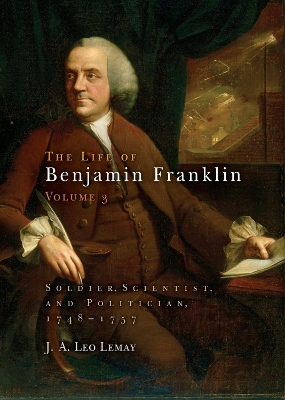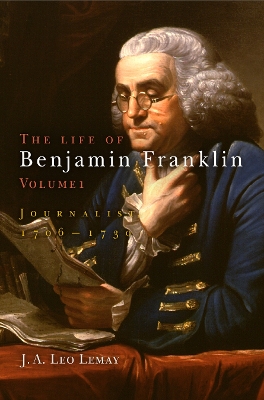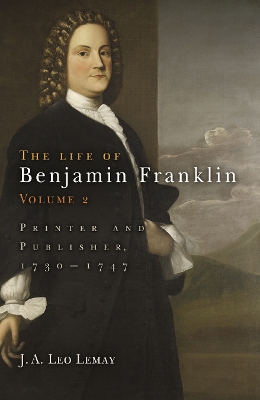The Life of Benjamin Franklin
3 total works
Described as "a harmonious human multitude," Ben Franklin's life and careers were so varied and successful that he remains, even today, the epitome of the self-made man. Born into a humble tradesman's family, this adaptable genius rose to become an architect of the world's first democracy, a leading light in Enlightenment science, and a major creator of what has come to be known as the American character. Journalist, musician, politician, scientist, humorist, inventor, civic leader, printer, writer, publisher, businessman, founding father, philosopher-a genius in all fields and a bit of a magician in some.
Volume 3 begins in the year 1748, when Franklin was known in Pennsylvania as clerk of the Pennsylvania Assembly and in the Middle Colonies as the printer and editor of Poor Richard's Almanac and the Pennsylvania Gazette, the best-known colonial publications. By the middle of 1757, where this volume leaves off, he had become famous in Pennsylvania as a public-spirited citizen and soldier in the conflicts of the Seven Years' War; well known throughout America as a writer, politician, and the most important theorist and patriot of the American empire; and renowned in the western world as a natural philosopher. This volume tells the story of that transformation.
Named "one of the best books of 2006" by The New York Sun
Described by Carl Van Doren as "a harmonious human multitude," Benjamin Franklin was the most famous American of his time, of perhaps any time. His life and careers were so varied and successful that he remains, even today, the epitome of the self-made man. Born into a humble tradesman's family, this adaptable genius rose to become an architect of the world's first democracy, a leading light in Enlightenment science, and a major creator of what has come to be known as the American character. Journalist, musician, politician, scientist, humorist, inventor, civic leader, printer, writer, publisher, businessman, founding father, and philosopher, Franklin is a touchstone for America's egalitarianism.
The first volume traces young Franklin's life to his marriage in 1730. It traces the New England religious, political, and cultural contexts, exploring previously unknown influences on his philosophy and writing, and attributing new writings to him. After his move to Philadelphia, made famous in his Autobiography, Franklin became the Water American in London in 1725, where he was welcomed into that city's circle of freethinkers. Upon his return to the colonies, the sociable Franklin created a group of young friends, the Junto, devoted to self-improvement and philanthropy. He also started his own press and began to edit and publish the Pennsylvania Gazette, which became the most popular American paper of its day and the first to consistently feature American news.
Named "one of the best books of 2006" by The New York Sun
Described by Carl Van Doren as "a harmonious human multitude," Benjamin Franklin was the most famous American of his time, of perhaps any time. His life and careers were so varied and successful that he remains, even today, the epitome of the self-made man. Born into a humble tradesman's family, this adaptable genius rose to become an architect of the world's first democracy, a leading light in Enlightenment science, and a major creator of what has come to be known as the American character. Journalist, musician, politician, scientist, humorist, inventor, civic leader, printer, writer, publisher, businessman, founding father, philosopher, Franklin is a touchstone for America's egalitarianism.
Volume 2 takes Franklin from his marriage in 1730 to his retirement as a printer at the beginning of 1748, examining the mysteries of the illegitimate William Franklin's birth and mother and Franklin's increasing civic activities-starting the Library Company in Philadelphia in 1731, forming Pennsylvania's first volunteer fire company, and becoming an advocate for a clean Philadelphia environment. J. A. Leo Lemay assesses Franklin's numerous writings, attributing to him for the first time a deistic Indian speech, remarking on his use of the second African American persona in journalism, and analyzing his publishing sensation of 1747, The Speech of Miss Polly Baker. These belletristic works are complemented by Franklin's religious, political, and scientific writings, which he produced prodigiously.


